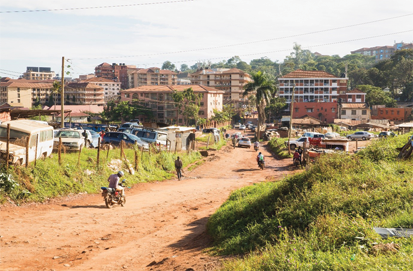COVID-19 crisis and engineering in sub-Saharan Africa
The Economic and Social Impacts of England’s Cathedrals
The COVID-19 outbreak is primarily depicted as a health and economic crisis, but it is fundamentally also an engineering challenge.
While research has been carried out on the impact of the pandemic on engineering globally or in the Western world, little to no research has been conducted about its impact on the engineering sector in sub-Saharan Africa. Yet, engineering is a motor of socioeconomic development in the African continent, and a disruption of the industry can have a major trickledown effect to the rest of the economy. The Royal Academy of Engineering commissioned Ecorys to fill this research gap, with funding from the Global Challenges Research Fund (GCRF).
Purpose of the research
The aims of this research were to:
- Identify the main impacts of the COVID-19 crisis on engineering in sub-Saharan Africa;
- Evidence the contribution of engineering to tackling the crisis;
- Provide a forward-looking view on how the crisis will impact engineering in the region in the coming years and develop recommendations on how to make the most of arising opportunities.
Our research covered 10 countries, selected according to early evidence of effective engineering interventions: Botswana, Cameroon, Ghana, Kenya, Lesotho, Nigeria, South Africa, Uganda, Zambia, and Zimbabwe.
Our findings
We found engineering actors played a critical role in tackling the COVID-19 outbreak in sub-Saharan Africa through:
- designing and manufacturing medical protective and sanitary equipment locally for the first time;
- rapidly building treatment, isolation and testing facilities;
- collecting data, analysing and modelling the response to the epidemic;
- funding, fundraising and supporting vulnerable groups;
- pivoting engineering education and training online;
- utilising the potential offered by robotics to take charge of certain medical responsibilities.
We found that the COVID-19 crisis is likely to have a lasting impact on engineering in sub-Saharan Africa. The pandemic was a wake-up call for many countries, making them realise that they need to support local production and capital within their health industry. We found evidence that governments are operating a shift towards supporting local production and facilitating local manufacturing’s access to capital. Engineers will be an integral part of that effort.
Key lessons from the COVID-19 crisis include the need for engineers to be more adaptable and deliver solutions quickly. Engineers also need to maintain tighter links with policymakers so they can contribute to anticipating similar crises and designing responses hand-in-hand with governments. Finally, an important priority is to develop new engineering skills. There will be higher demand for technical skills that can help support the accelerated digitalisation of SSA countries. The crisis has also highlighted the need for the training of engineers to be more flexible, entrepreneurial, and creative. Future engineers will be expected to work across sectors to develop more holistic and resilient technologies. The crisis could drive a major shift in the way engineering education is delivered. Remote learning and teaching will become much more common, and this means that the engineering education paradigm will need to evolve accordingly.
Our research has identified a number of opportunities that the SSA engineering profession could build on in the years to come:
- Realising the transition towards self-reliance in manufacturing.
- Building local engineering capacity.
- Increasing the visibility and standing of the engineering profession.
- Matching skills to changing future priorities.
- Expanding cross-sectoral collaboration.
- Building more socially responsive and resilient infrastructure.
- Sharing best practices.
- Utilising the greater ease of doing business.
The full findings of our research can be accessed on the Royal Academy of Engineering’s website
The Ecroys project team included: Olivia Geymond (research manager); Sara Rizzo, Beatriz Amaral, Lucia Solda, Sarah Hanka (researchers); Andrea Broughton and Jonathan France (co-directors); Denis Van Es (independent consultant).
For more information, please contact Olivia Geymond, Senior Research Manager:
Photo Credit: Kit Oates

22 July 2021
3 minute read
Sectors
Key Experts
Olivia Geymond
Senior Research Manager



